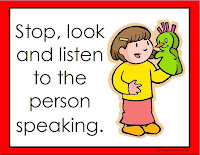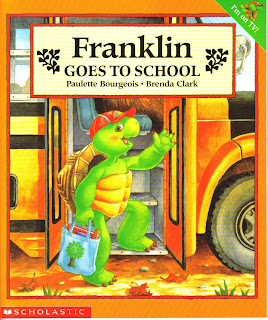
Today’s presentation was really well done. I really enjoyed it and found it very interesting! It definitely expanded my knowledge about hidden curriculum and socialization. I appreciated that the presenter approached this topic in an impartial way. That is, she was not criticizing this type of hidden curriculum; she was just explaining how we use it every day in the classroom and how it affects our students’ behaviours – especially in early elementary school. I found that this approach allowed me to think more about my experiences in school as both a student and a teacher, and determine the function and implications of this hidden curriculum.
The process type of hidden curriculum refers to everything that children learn in school concerning socialization and establishing social norms and values. Hidden curriculum is not part of the formal curriculum. Once a child enters the school system in Preschool or Kindergarten, they are no longer socialized exclusively in the home; the teacher and the school become another form of socialization. I have always thought of school as a socialization process but I never realized how much we do as teachers to reinforce what society views as important characteristics and values. Some that were listed today were: conformity, delayed gratification, competitiveness, and obedience to authority figures. I would consider the process of socialization to be almost as important as actual curriculum content. These are skills that will definitely be needed and utilized in the future.
We were asked to think about our first day of school as a young child. For everyone, it seemed to be characterized by a set of rules, routines and procedures that were to be learned and obeyed. Students are socialized to be somewhere when the bell rings, to listen when someone else is talking, to put up their hands when they want to speak, to be responsible for their possessions, to share and play nice with others, to be honest, to be positive about their abilities, to respect themselves and others, and the list goes on. Usually when we think about hidden curriculum, it has a negative connotation. However, in this case, I feel as though all of these skills are vital for success in school and later in life. We are not telling student they always need to conform and be like everyone else, we are implicitly (and sometimes explicitly) socializing them to succeed in school and society by understanding the standards put in place.
In my opinion, one of the most interesting topics discussed was the literature used by teachers (and parents) to explain these societal norms and moral lessons through the use of stories. Unlike the use of rules and procedures, this is something that I hadn’t previously thought a lot about. There are so many books about first days of school, listening to your teachers/parents, being a good friend, etc. I think this is a great way to teach children about these concepts (even though some of these stories seemed quite funny). Without these societal norms, the classroom would be chaos.

I plan on teaching early elementary and I definitely plan on having very clear rules and procedures set out. I think that this is absolutely necessary in the early years of schooling. It is a big transition for young students to go from being the center of attention to being a part of a group and I think they need to learn these behaviours early as they are also important later in life.

A typical functionalist interpretation. And, nothing wrong with that. But note that the need for the class not to be chaos is our need as teachers not so much the need of children. Left to their own, kids would quickly develop their own rules and order (don't step on a crack or you'll break your mother's back) -- it just would serve their needs, not ours. And learning to take orders is an important social function for those in control. But what if those in control shouldn't be? Where in our schools do we teach when it is appropriate to protest? Where are the books that teach kids when it is right to call teachers and parents on bad behavior?
ReplyDelete